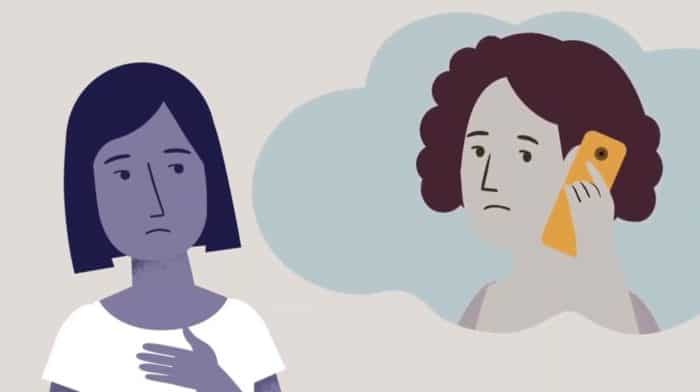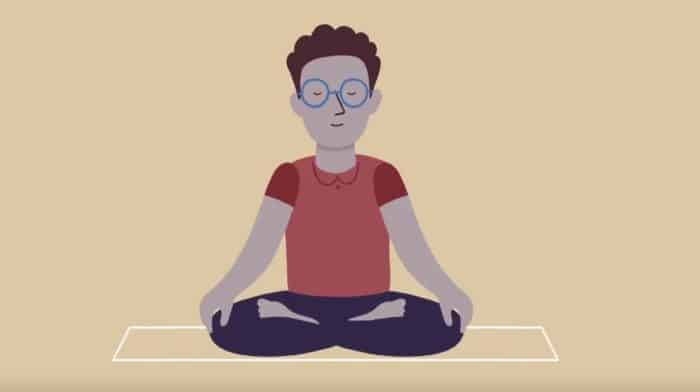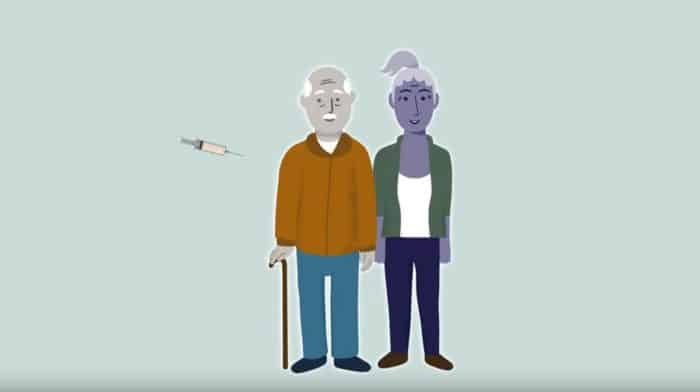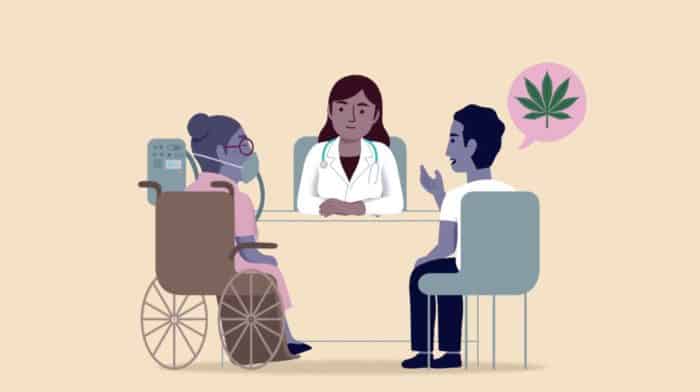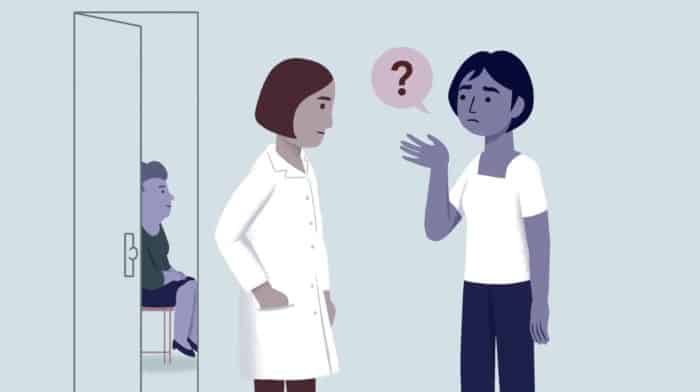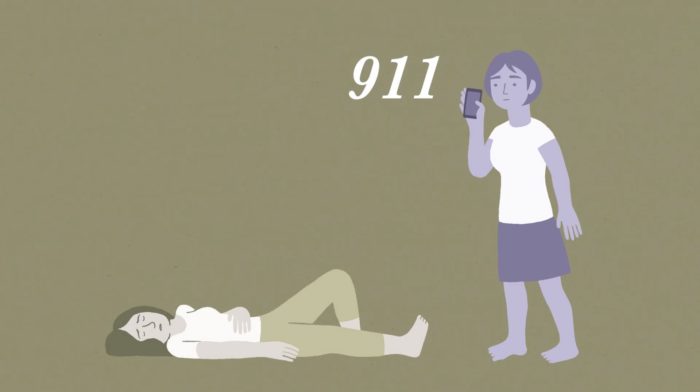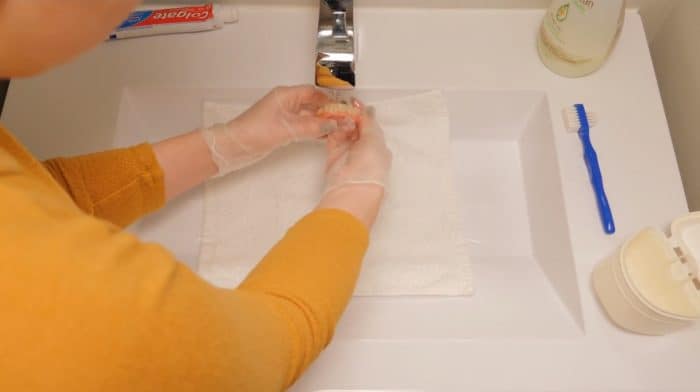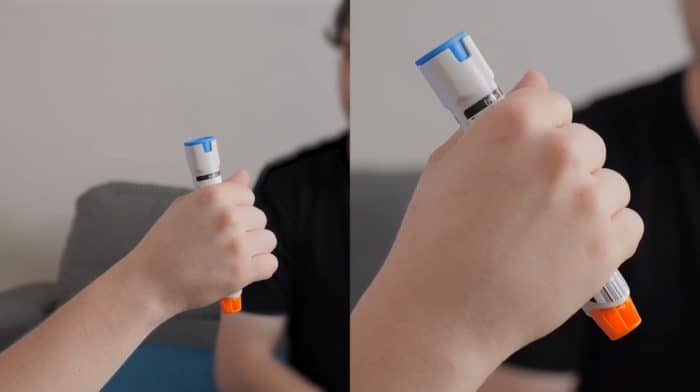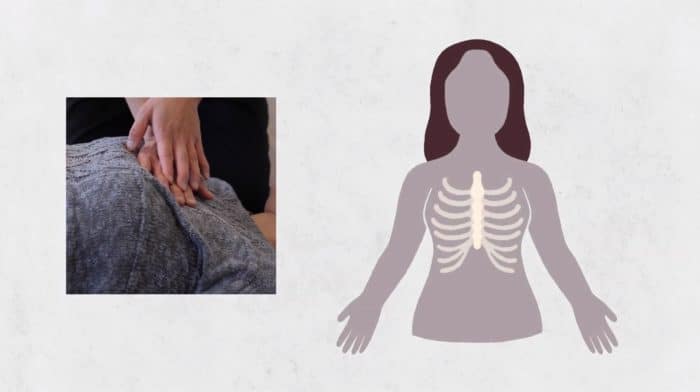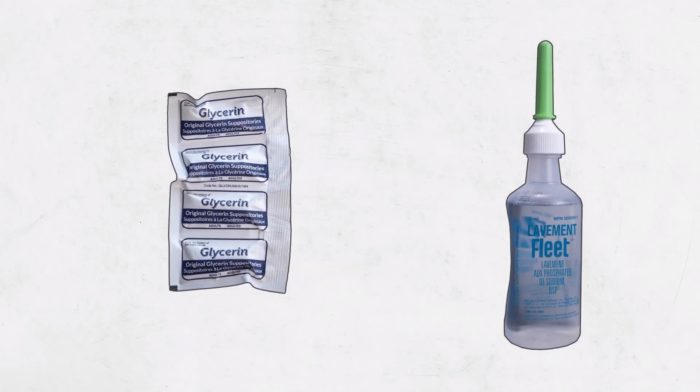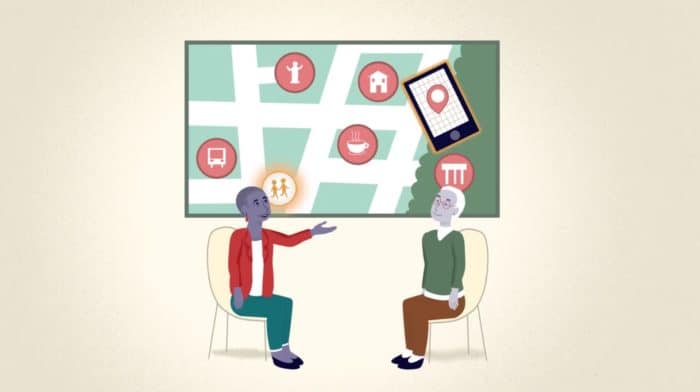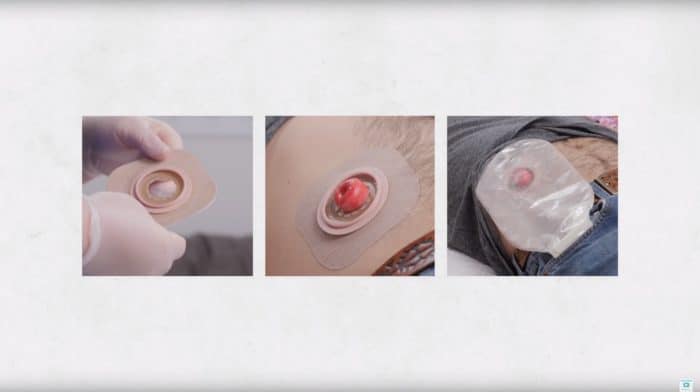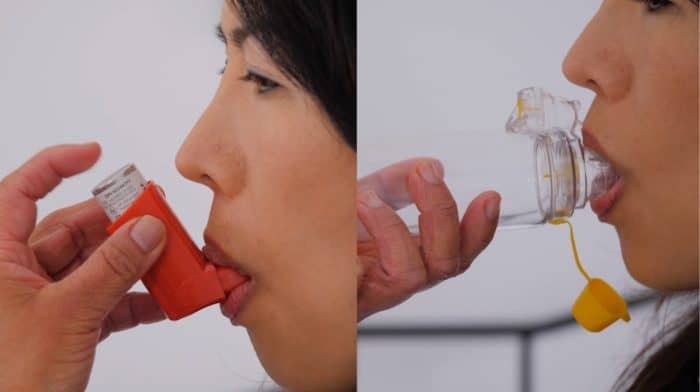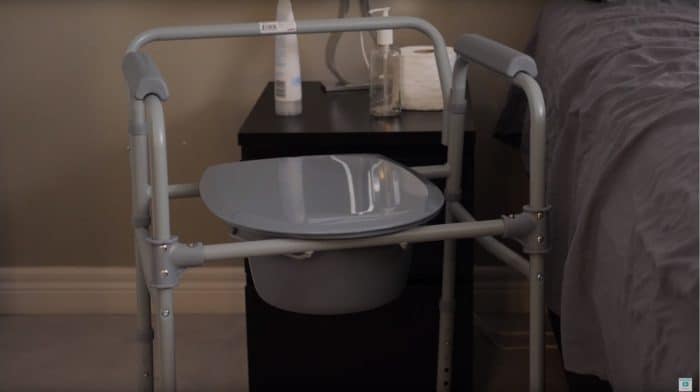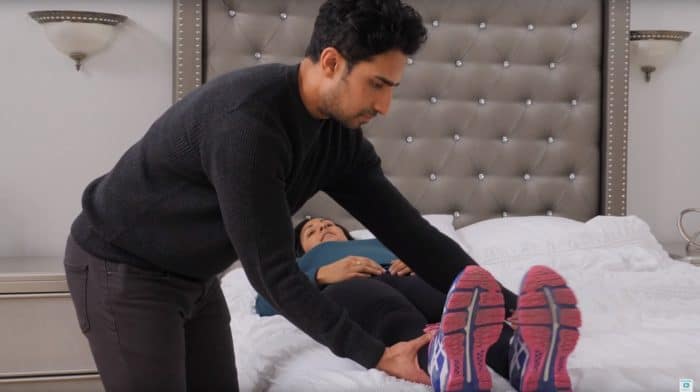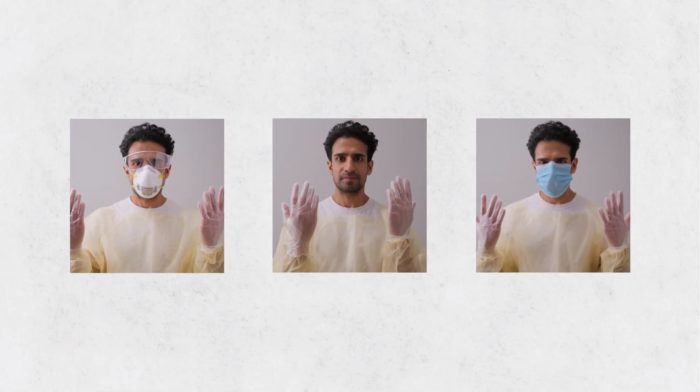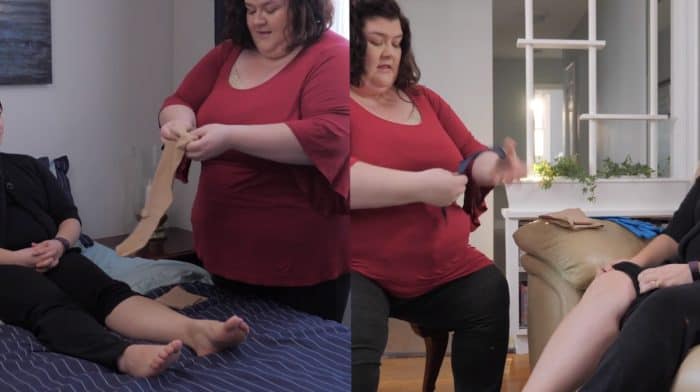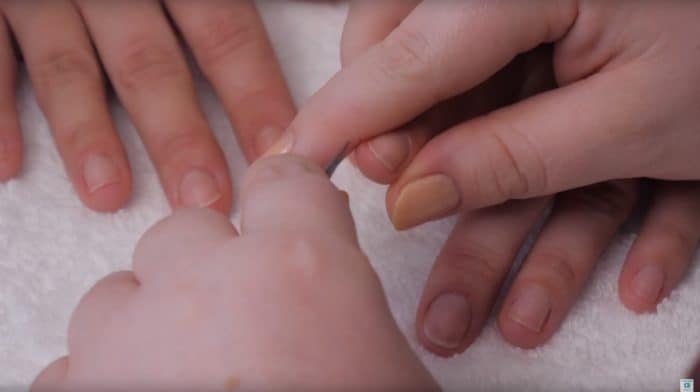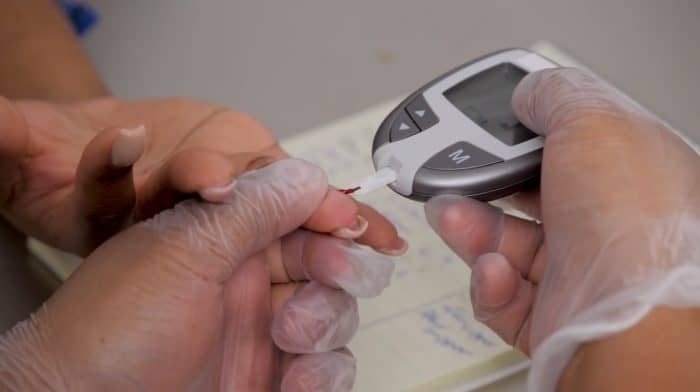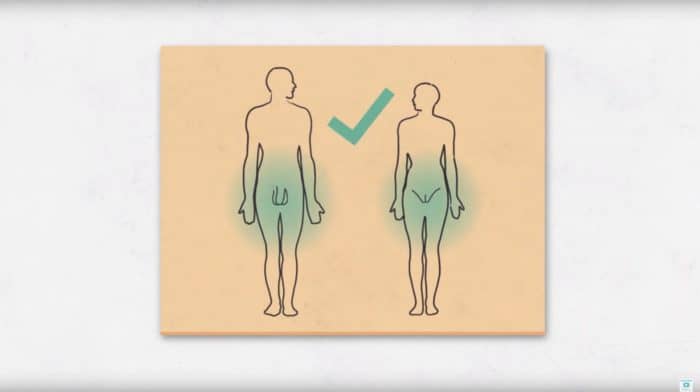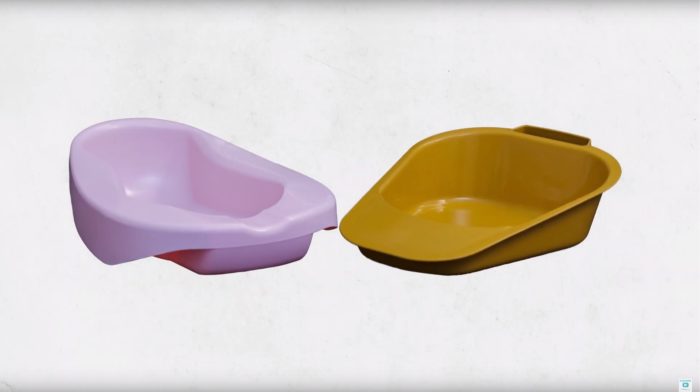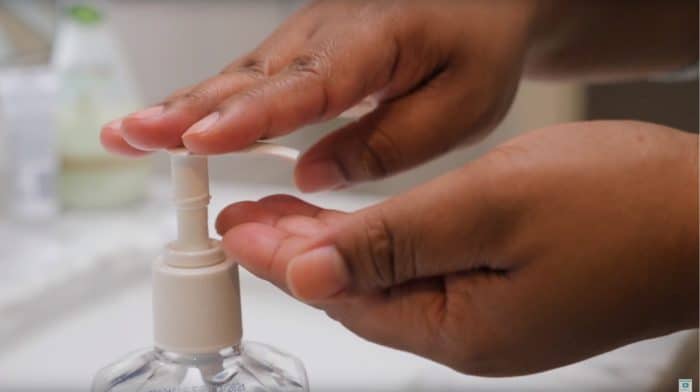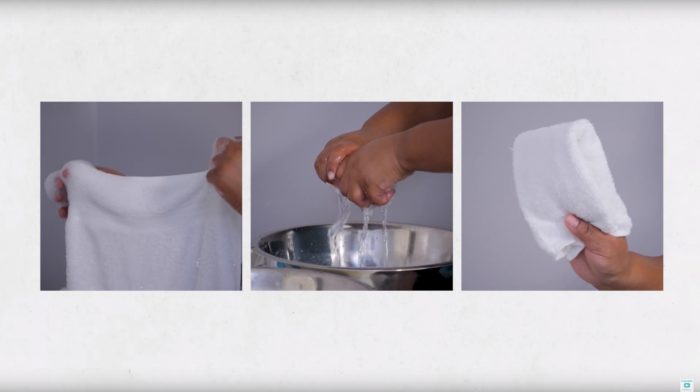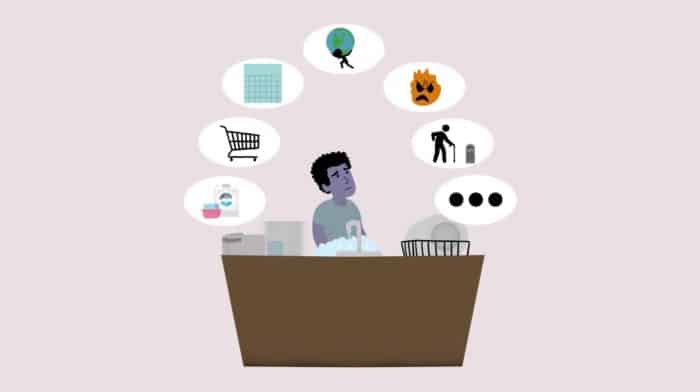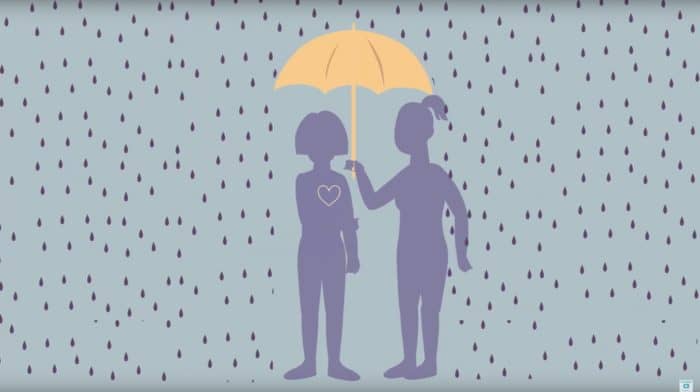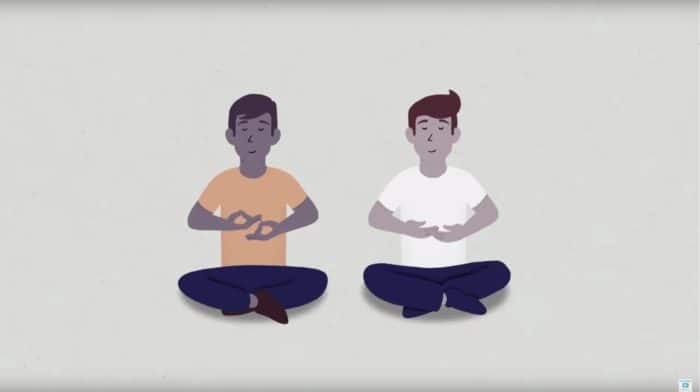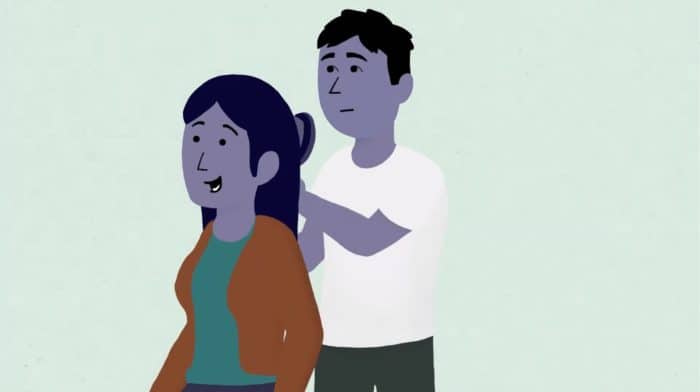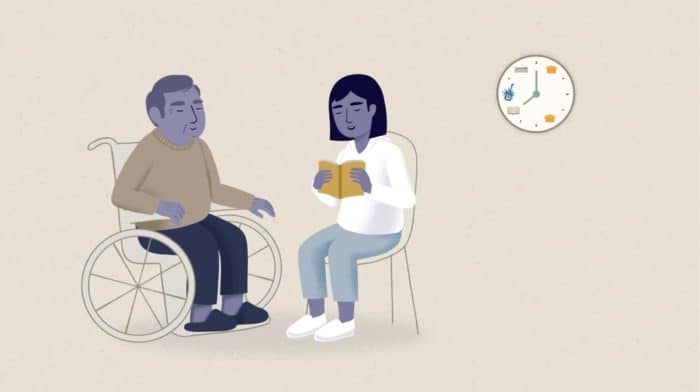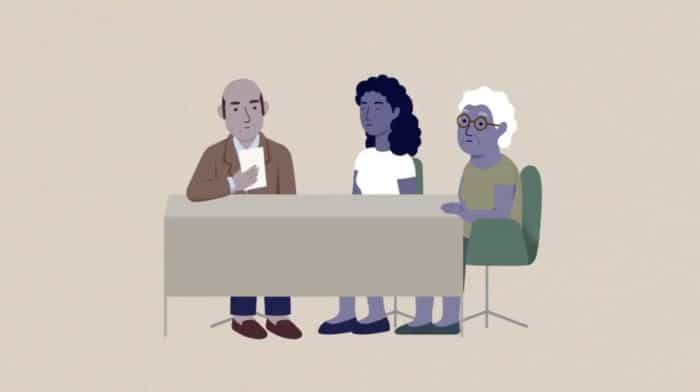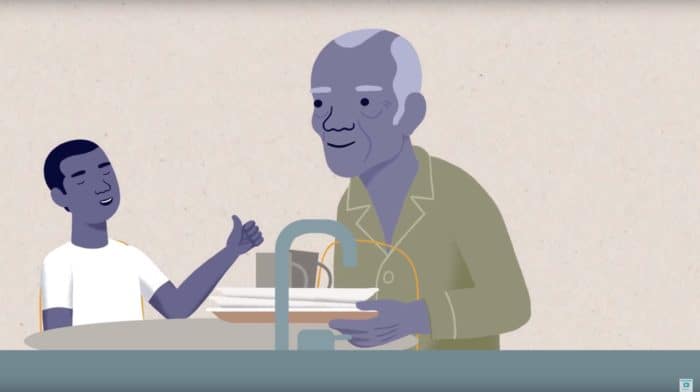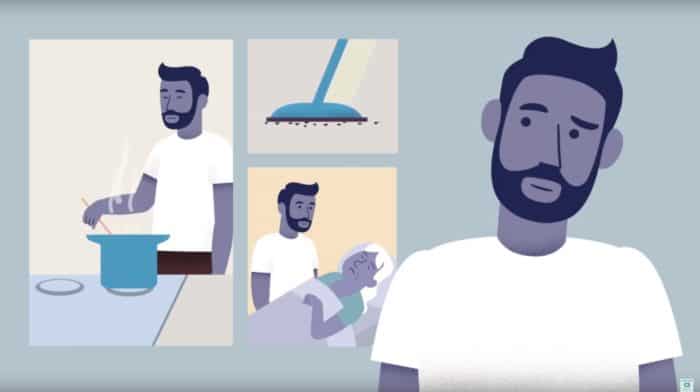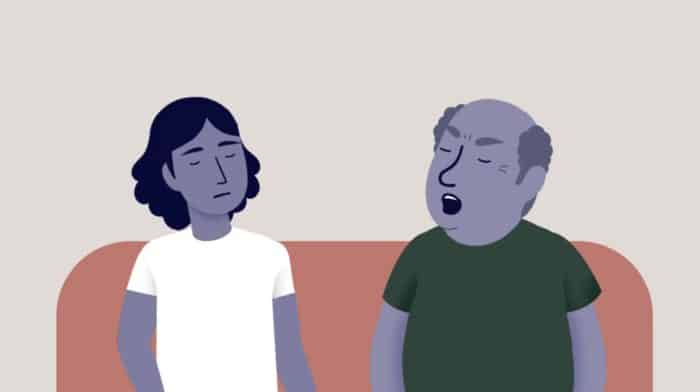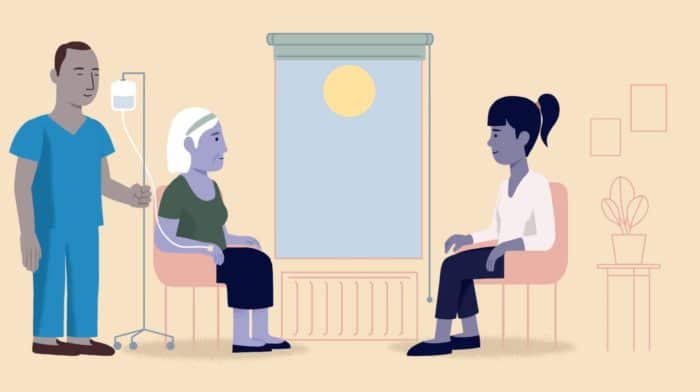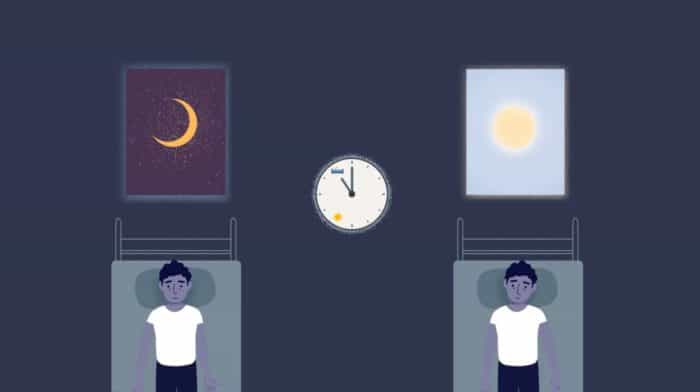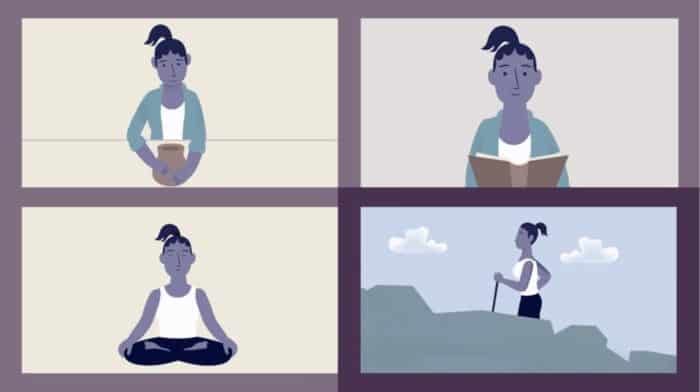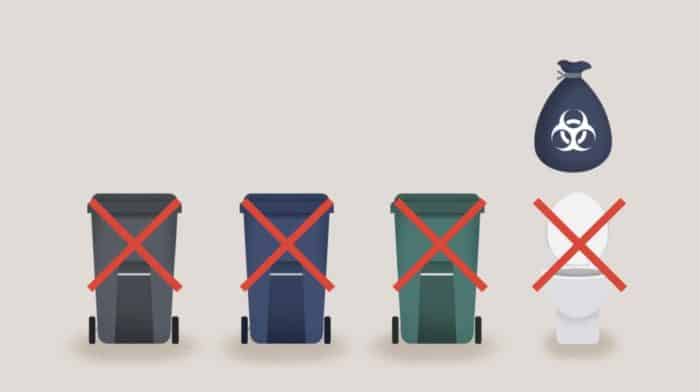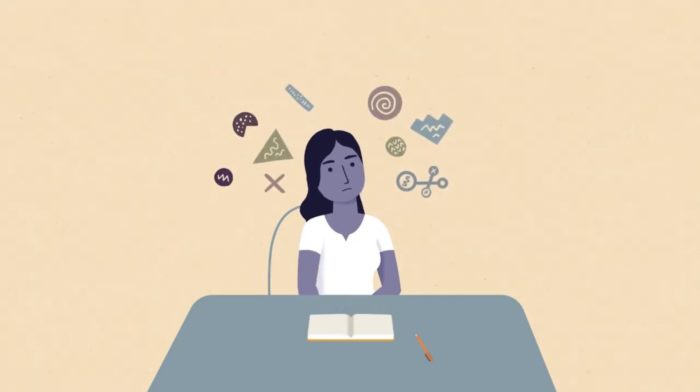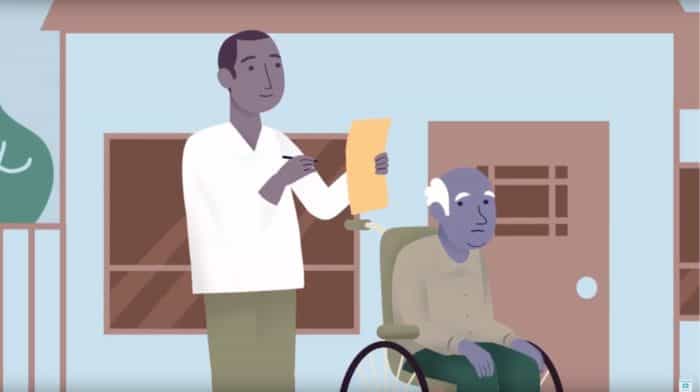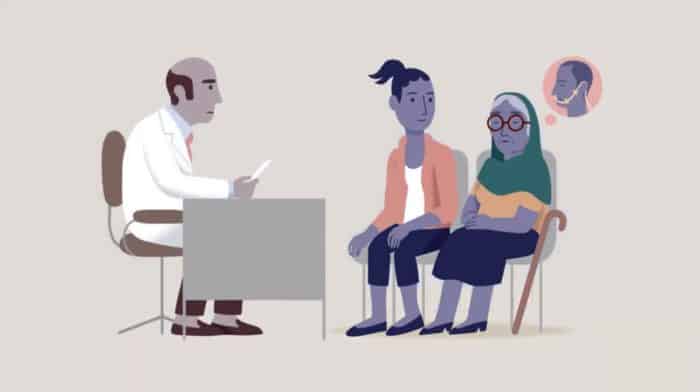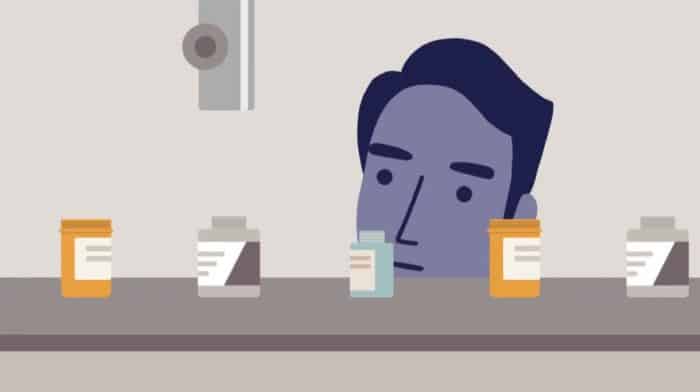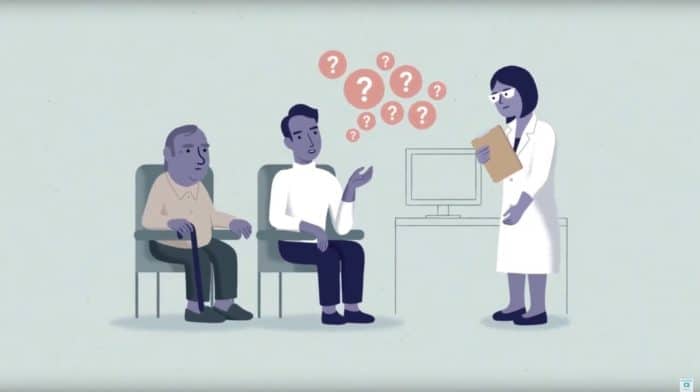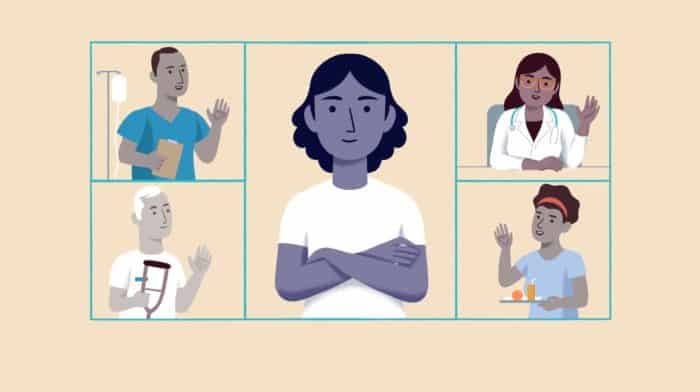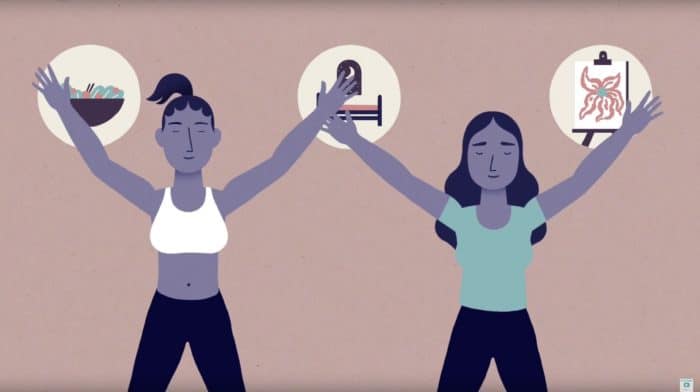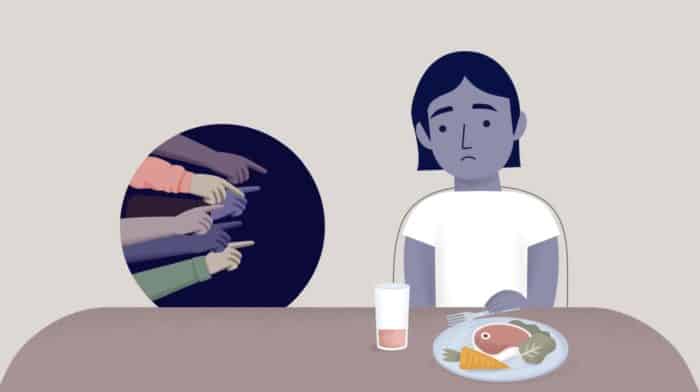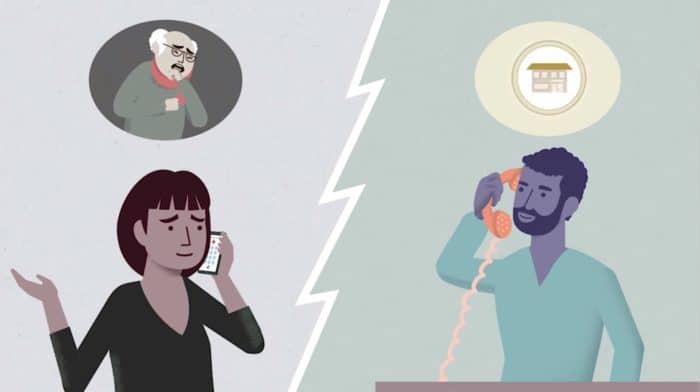Resource Library
Search:
When and how to ask for help
Finding a balance between your daily life and your caregiving role can be tricky. Your duties as a caregiver can change from day to day, and it might start to get overwhelming. It’s important to know when and how to ask for help. In this video we’ll give you some tips on how to ask for help, even if you don’t want to do it.
Understanding Alternative Medicine and Therapies
If the person you’re caring for is struggling with symptoms from a chronic condition like diabetes or arthritis, using alternative medicine may help. In this video we’ll explain what this type of medicine is, and explore how it may or may not help you in your caregiving situation.
Understanding How Vaccines Work
As a caregiver, you spend a lot of your time in close contact with the person you’re caring for. For their safety and yours, it’s important that you both stay up to date with your vaccinations. In this video, we’ll explain the benefits of getting vaccinated, and go over a few of the vaccinations that every adult should get.
What are the Options for End of Life Care
The subject of end of life care can be a difficult thing to talk about, but as a caregiver, it’s important that you sit down with the person you’re caring for to discuss their wishes.
How to Get Over Help Hurdle
What do you do when a person that you are trying to help, doesn't want or accept it?
How to Deal with Worry
As a caregiver, you are no stranger to the feeling of worry. It’s tough, especially when it's about something you have no control over or can’t change.
How To Navigate Being A Caregiver in The Workplace
As the Canadian population ages, more and more caregivers are needed each year. Many people who take on the role of the caregiver also have a day job, and balancing both caregiving and work can be a major challenge.
How to Prevent Bed Sores
If the person you’re caring for spends a lot of time laying or sitting they are at higher risk of getting bedsore, which is also called a pressure ulcer.
How to Help Someone With a Speech or Hearing Impairment
If you’re a caregiver, clear communication is a key part of the relationship between you and the person you’re caring for. However, if they’re living with a hearing or speech impairment, communicating effectively can sometimes be a challenge.
Understanding Medicinal Cannabis and Its Uses
Since cannabis was legalized in Canada for both recreational and medicinal purposes, you might be wondering if cannabis could help the person you’re caring for. In addition to recreational use, cannabis, also known as marijuana, is being used by many Canadians to help to improve symptoms of their medical conditions.
How to Spot & Manage Sundowning
If you’re caring for someone with dementia, you may have noticed that near the end of the day they sometimes feel confused, restless, or agitated. This behavior, known as sundowning, can be a scary experience for the person you’re caring for, and might also cause you to feel overwhelmed as their caregiver.
5 Questions To Ask Your Healthcare Providers
As a caregiver, you spend a lot of your time making sure the person you’re caring for gets the support they need. But caregivers need support from health care professionals.
The Signs of A Heart Attack
If you’re a caregiver for someone who’s at risk of developing heart disease, being able to recognize the signs and symptoms of a heart attack is important.
How to Manage Awkward Tasks
As a caregiver, the person you’re caring for may need you to help them with their personal care and, sometimes, you may have to do some unpleasant tasks that you thought were only done by nurses, doctors or other health care professionals.
What to Do if Someone’s Choking
Though choking incidents drop significantly in the adult age category, anyone can still choke. If the person you’re caring for starts to choke, do you know what to do?
How to Help with Range of Motion Exercises
Exercise can help you stay fit and healthy, but after an injury or illness, the person you’re caring for may have a hard time with a normal exercise plan.
How to Care For Someone’s Dentures
If the person you’re caring for wears false teeth, you may need to help them take care of their dentures. Dentures require special care to keep them clean, free from damage and fitting well.
How to Help with Oxygen Therapy
If the person that you're caring for needs oxygen therapy, you may need to help them with it.
How To Deal With A Severe Allergic Reaction
If the person that you’re caring for has an allergy, it’s important to know how to deal with a severe allergic reaction.
How to do CPR
It’s scary to think about, but there may be a time when you’ll need to use CPR to save the life of someone you’re caring for. Cardiopulmonary resuscitation, most commonly known as CPR, is when you help a person’s heart move blood through their body when their heart has stopped.
How To Give A Suppository Or Enema
If the person you’re caring for has trouble having a bowel movement, they may need some extra help with medications like a suppository or an enema, and they may need your help with it.
What to do if Someone Is Having a Seizure
If the person you’re caring for has a seizure, it can be distressing to see, but there’s no need to panic.
How To Deal With Severe Bleeding
When bleeding is severe, it can cause trauma for you and the person you’re caring for. Knowing how to control severe bleeding and prevent shock in an emergency situation can save their life.
Understanding Consent and Capacity
In Ontario, healthcare teams have to have informed consent or refusal before they can give any treatment or care to their patients.
I am a Substitute Decision Maker… What Now?
A Substitute Decision Maker is a person (or people) who will provide consent or refusal of consent for care and treatments for you if you are not mentally capable to do that for yourself.
Substitute Decision Maker
A substitute decision maker is someone who you choose to make decisions about your health care if you can’t. If you haven’t chosen someone, by law the Ontario government will assign someone to you in an emergency.
Advance Care Planning in Ontario
If you need medical treatment, the health care professionals that see you, need to have your consent. If you couldn’t speak for yourself, who would you want to speak for you?
How To Prevent Someone From Going Missing
More than half a million Canadians are currently living with dementia, and you may be surprised to learn that six out of ten of them will go missing at some point.
How Positive Thinking Can Improve Caregiving
As a caregiver, you have to be realistic about what can and can’t be controlled. Your attitude can be the biggest barrier to taking care of yourself and doing the best job for your loved one.
How To Give a Needle or Injection
Needles are never fun, but giving a needle might be added to the list of tasks you’ll need to do as a caregiver. Learn how to do so safely!
How To Manage Wound Care At Home
The person you are caring for may have wounds that require care at home. These wounds may be due to surgery or pressure damage, or the consequence of long-standing chronic conditions.
How To Empty and Change an Ostomy Bag
Ostomy is a surgically created opening through which stool or urine exit the body. A person may be required to have an ostomy bag. Emptying this bag is a fairly simple process but can also be overwhelming.
How To Maintain A Catheter
The mere mention of a Catheter can make some people uncomfortable, but it’s not as difficult as it sounds. It is important to Routinely clean catheters to prevent infections.
How To Help Someone Shower
Many people find themselves in the awkward position of having to bathe someone else. If you feel uncomfortable assisting someone with their personal care, you’re not alone.
How To Help With Eye Drops & Ointment
Whether it’s because of infection, injury, disease or dry eyes, the person you’re caring for might need help with their eye drops or ointments.
How To Help Someone With A Puffer
As a caregiver, you may not even think about breathing. You just do it. However, the person you are caring for may rely on medication(s) to help them breathe.
How To Apply Medication Patches and Creams
If a healthcare professional orders medication patches or creams for the person you’re caring for, you may need to help them apply them.
How To Help With A Commode Chair / Urinal
Sometimes the person you’re caring for might need help using the toilet. If they aren’t able to walk to the washroom, using a bedside commode or urinal can be a good option. Helping someone use the toilet can be embarrassing for both of you, but it doesn’t have to be.
How To Help Move Someone Around in Bed
When the person you’re caring for has to stay in bed for long periods of time, you may have to give them personal care in bed. Moving someone around in bed can be tiring and you might be afraid of hurting yourself or the person you’re caring for.
How To Protect Yourself From Common Caregiver Injuries
As a caregiver, you’re probably going to have to physically help the person you’re caring for at some point. Protecting yourself from injury is one of the most important things that you can do.
How To Assist Someone With a Walker
If someone has had a fall, surgery or has become unsteady on their feet for any reason, using a walker can help prevent falls and provide support.
How To Assist Someone With a Cane
As a caregiver, and like the majority of us, you are up and down countless times in a day without giving it much thought. However, this task may be difficult for the person you’re caring for. If the person you’re caring for has an injury or becomes unsteady on their feet they may need to use a cane, you want to make sure they’re safe.
How To Care For Someone On Their Menstrual Cycle
At times the person you’re caring for may be menstruating and may need assistance to manage their cycle. Helping someone stay clean and dry during their cycle will help prevent skin rashes, infections and help them feel better.
How to Transfer Someone From Bed To Chair
Sometimes the person you’re caring for will need help getting out of bed because of pain, surgery or difficulty moving. You may be worried that they’ll fall if they try it alone or you might be afraid to injure yourself.
How To Use Medical Personal Protective Equipment
Sometimes the person you’re caring for will get an infection or disease that can spread to other people they have contact with. Knowing this can be frightening and might make you feel uneasy giving care in this situation–not just for you, but for family and visitors as well.
How To Wash Someone’s Hair In Bed
When they’re not able to get into the shower or bath, it can seem impossible to keep their hair and scalp clean. But washing someone’s hair in their bed doesn’t have to be difficult.
How to Help With Tooth Brushing
Brushing your own teeth is a simple task but it’s not so simple when you have to do it for someone else. Mouth care is important because it maintains oral health, prevents infection and helps to maintain appetite.
How To Dress Someone in Bed
Getting dressed and undressed is an everyday task that’s challenging for many older adults. A variety of health conditions can make independent dressing difficult.
How To Help With Compression Stockings
Sometimes a doctor will order compression stockings to help someone with swollen legs and feet.
Footcare for a Person with Diabetes
Foot care matters for the person in your care, especially if he or she has diabetes. If the person you’re caring for has diabetes, they may lose feeling in their feet. This can cause injuries like wounds and blisters that they won’t even know are there.
How To Care For Someone’s Nails
When the person you’re caring for can’t trim their own nails, they can be at risk for infections, pain from long nail growth and scratch injuries.
How To Check Blood Sugar
Testing blood sugar regularly helps to keep blood sugar levels (also known as blood glucose levels) under control.
How to Wash Genitals
It might be awkward to do, but keeping someone you care for clean is essential. Poor hygiene can cause discomfort, skin complaints and infections, and can lower self-esteem.
How to Use a Bedpan
If you are helping someone with a bedpan, try to be relaxed. Helping with a bedpan can be embarrassing for both of you. If you are calm and don't seem embarrassed, the person may feel more comfortable.
Changing an Adult Brief
Putting an adult brief on someone else can be a little tricky – especially if you are new to the process. Depending on the wearer’s mobility, briefs can be changed while the person is standing, sitting, or lying down.
How To Assist with Eating and Drinking
If the person you are caring for is unable to eat because of physical restrictions or they have difficulty swallowing.
Falls Prevention
It seems like common sense — everybody falls, no matter what age. However, for many older adults, an unexpected fall can result in a serious and costly injury. The good news is that most falls can be prevented.
How to Wash Your Hands
Hand washing is the most important thing we can do for ourselves and for the people in our care. Whatever we come into contact with may contain germs and we can become infected without knowing it, simply by touching our eyes, mouth, or nose before washing.
How To Change Sheets
Of course, changing bed linens when nobody is in the bed is easy, but changing an occupied bed is a little different but at the same time almost just as easy if you know-how.
How To Give a Bed Bath
Bathing keeps the skin healthy and can help prevent infections. It's a good time to check the skin to look for sores or rashes. Bathing also helps your loved one feel fresh and clean.
The Signs of a Stroke
During a stroke, every minute counts! Fast treatment can lessen the brain damage that a stroke can cause. By knowing the signs and symptoms of stroke, you can take quick action and perhaps save a life.
What is the normal aging process
Aging is a regular part of life, and as a caregiver it’s important that you’re able to tell the difference between the normal aging process and the signs that something might be wrong.
How To Prevent Caregiver Burnout
Caring for someone can certainly be rewarding, but it can also be stressful. Nearly half of all family caregivers say they are “somewhat stressed,” and more than a third are “highly stressed”.
How To Care for Someone That is Suicidal
A suicide attempt should never be seen as a bid for attention. Depression tends to come back, especially if it's not treated or is only partially treated.
How To Help Someone Having a Panic Attack
If someone you care for has a panic attack, he or she may become very anxious and not think clearly. You can help the person by staying calm, sticking around and do your best to be understanding, positive, and encouraging.
How To Help Someone With Vision Loss
If the person you’re caring for has recently experienced vision loss, you may be worried about how this change will impact your caregiving. Aside from the obvious physical effects, visual impairment can take an emotional toll as well. It’s important that you help the person you’re caring for feel as comfortable as possible during this stressful time.
Diet Tips for Low Blood Pressure
There are many causes for low blood pressure, also known as hypotension. It could be certain medications the person you’re caring for is taking, extended bed rest, particular heart conditions, or other reasons. Dietary changes can also help to raise blood pressure. Small changes in diet can make a big impact to the health of the person you’re caring for.
Diet for Diabetes
When the person you are caring for is diagnosed with diabetes, it's natural to have questions about what food to eat. Each person with diabetes is different and there is no single diet that suits everyone.
Mental Changes With Dementia
Living with dementia will affect a person's feelings, thoughts, and responses. It is important to recognize and respond to the person's emotional needs. It can also cause not only loss of memory but also changes in behaviour and mood.
Pain Management
Pain is complex, and there are many treatment options, medications, therapies, and mind-body techniques. Learn the benefits and risks of each, including addiction and how to use medication responsibly.
How To Improve Your Communication Skills
Communicating well is an important part of being a good caregiver. If you and the person you’re caring for don’t communicate your feelings clearly and directly, it can lead to stress and frustration for both of you.
Young caregiver
Taking care of a family member isn’t easy, especially if you’re a young caregiver. It’s a lot of responsibility, and you can start to feel like your life isn’t yours anymore. But caregiving is important, and your help makes a big difference.
Continuing Power of Attorney
Continuing Power of Attorney is a legal document to give another person legal authority to make decisions about their finances and property, (not about their personal health or care) if they become unable to make those decisions themselves.
How To Promote Independence In the person you’re caring for
As a caregiver, your instinct is to give the person you’re caring for as much help as you can. But did you know that it’s possible to help them too much? Giving someone more support than they need can cause them to become dependent and reduce their ability to care for themselves.
What Is Good Mental Health
You might not think it, but your mental health is just as important to your overall wellness as your physical health. In fact, your mental health can have a big impact on how well your body feels. As a caregiver, maintaining your mental health is one of the most important things you can do for yourself.
How To Re-frame Your Thoughts
Reframing is a technique to shift your perspective or point of view on a situation, person or problem. Usually, the shift is from a negative perspective to a more positive one, to one that sees the good in the situation.
What Are Responsive Behaviors
People with dementia often use behaviors such as wandering, pacing, cursing and calling out to tell us what they want or how they feel and there could be a number of reasons why it could be happening.
What is Palliative Care
Just hearing the words palliative care can be scary. When a doctor says the person you’re caring for would be helped by palliative care, you might think that means they’ll pass away soon, but that isn’t always the case.
Tips For Getting Better Sleep
Finding time to sleep may be one of the biggest challenges of caregiving. Sleep deprivation isn’t just dangerous for you as the caregiver; it also puts the person you are caring for at risk.
What To Expect At The End Of Life
Everyone is different, so it’s not easy to say exactly what will happen when someone approaches the end of their life. But in the last weeks and days before death, it’s common to experience certain changes.
How To Use Spirituality To Manage Caregiver Stress
Spirituality is different for everyone. Many people find that having a spiritual or religious practice helps with stress management.
How to Safely Dispose Of Medical Waste
One of the challenges that a caregiver faces is determining how to properly manage waste, especially medical waste. Medical waste removal isn’t hard to do properly. You just need to know how to do it.
How To Start Journaling
Studies have shown that journaling improves self-awareness and can give you the perspective that may be beneficial in relieving some of your day-to-day Caregiver stresses.
Transition From Hospital To Home
Leaving the hospital can be both exciting and stressful. Whether it was a long or short hospital stay, there is often some degree of apprehension about the return home.
Advance Care Plan
Advance Care Planning is a process of thinking about and sharing your wishes for future health and personal care. It helps you tell others what would be important if you were ill and unable to communicate.
Medication Safety Tips
Safety is important when you are caring for someone who takes medication. But there might be somethings you don't know about medication safety.
Being a Patient Care Advocate
What is a patient care advocate? How do you know how-and-when to step up for the person you are caring for?
Working with Healthcare Professionals
Health care partnering is essential to successful home care. As a caregiver, you are an important part of the health care team. It’s a big job – 80 percent of patient care is given by informal or family caregivers in the community so you are the eyes, ears, and hands for health care professionals.
How To Create a Support Network
Caregiving can be emotionally and physically demanding (and exhausting). Establishing a caregiver support network can help to set you up for success as a caregiver.
Caring for Anxiety
Anxiety is a normal response to a threatening situation and can positively motivate us. However, it becomes a problem when it interferes with normal functions, causes physical symptoms and becomes intolerable to the person.
Creating Time for Yourself
The emotional and physical demands involved with caregiving can strain even the most resilient person. As a caregiver, if you don't take care of yourself, you won't be able to care for anyone else.
How To Deal with Loss and Grief
Grief is a natural response to loss, coping with the loss of someone or something you love is one of life’s biggest challenges. Often, the pain of loss can feel overwhelming.
1 Minute Stress Exercise
During moments of stress, have you ever said to yourself or others, “I just need some breathing space," or "I need a minute?”
How To Deal with Caregiver Guilt
As a caregiver, feeling guilty is very common. You’re not alone. You may feel guilty because you took some time for yourself recently or feel that you’re not being a good enough caregiver.
Where to Go for Medical Help
As a caregiver, you need to ensure that the person you’re caring for gets proper medical treatment. There are different care options, and it can sometimes be hard to tell which one is the best choice.
How To Assist Someone Using Crutches
If the person you’re caring for hurts their leg or foot and can’t put weight on it, or they just need some extra stability when walking, they might need to use crutches.


